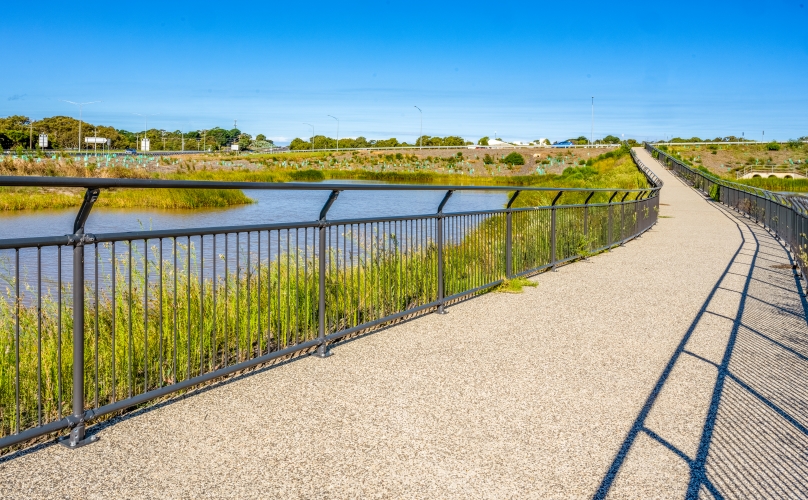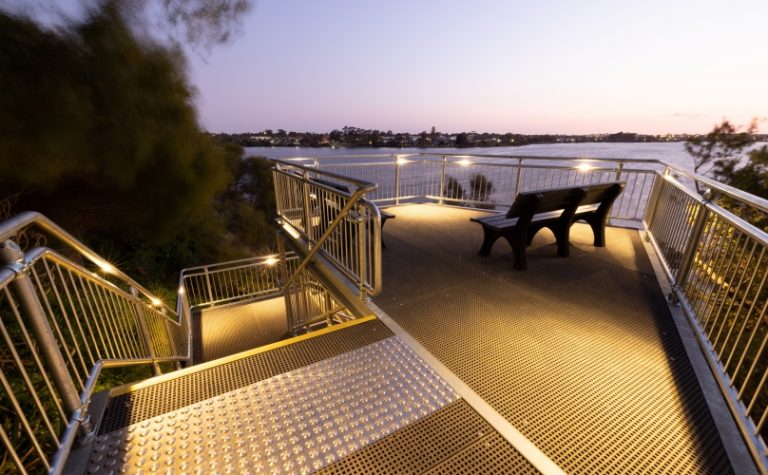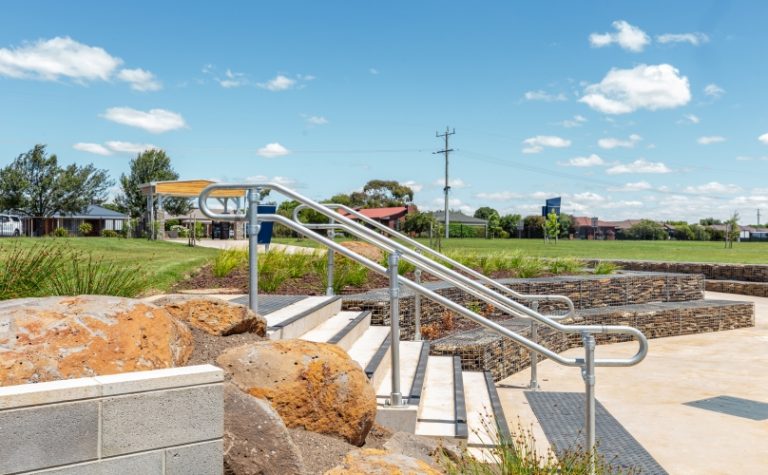-
Australia
Copyright © 2025 Powered by BCI Media Group Pty Ltd
Confirm Submission
Are you sure want to adding all Products to your Library?
Contact Detail
18 Apr 2023 by Moddex

The use of modular building products continues to gain significant traction as a preferred method of increasing efficiency on construction projects.
While modular has proven itself as a faster, more versatile and high-quality building option, some architects, designers and specifiers remain hesitant to specify modular handrail systems for their projects. Balustrades and handrails are critical components of a building’s architecture and play a key role in providing safety and support. These solutions must adhere to strict requirements set out in building codes and regulations. An architect, designer, specifier, builder, and/or contractor may be subject to costly litigation if the design and construction of these elements is poorly planned, executed, and especially if product failure occurs.
Against this backdrop, there may be some skepticism that modular handrail systems can deliver the requisite strength, durability, quality as well as versatility in application and aesthetics while retaining the modular price advantage. However, as we will discuss below, the modular approach in this context reduces the complexities associated with compliance, quality control and installation, providing stakeholders with time-saving and cost benefits across an entire building project.

Design Flexibility
MYTH: Modular systems are restrictive in design and aesthetics.
REALITY:
The simplicity of designing and building a handrail through modular construction does not mean your design options are limited. By reducing design complexity, a pre-engineered railing system actually helps create design flexibility. Modular systems offer a centralised solution for designing a solution that meets project requirements with different features that allow variations within the design as needed.
Leading manufacturers have a range of product configurations, each designed for a specific application, with options for customisation. Off-the-shelf products can be combined with bespoke components to meet special requirements. Special in-line joiners and spacing plates can be used to alter or extend an existing configuration. Custom powder coating options can be used to colour match the railing with other elements in the environment. For most onsite issues, there is a solution available without sacrificing the modular advantage.

Quality, strength and durability
MYTH: Modular systems are “weak”, “cheap” and “not built to last”.
REALITY:
Modular handrail systems are perceived to suffer from issues with connections coming loose over time, weak links, not being structural sound and not being able to withstand harsh weather.
The quality, strength and durability of modular railing systems is equal and often higher than that of traditional systems. Modular systems benefit from continuous innovative product engineering and highly-skilled offsite teams designing systems that can meet strict performance requirements over many years. Each component is subject to rigid manufacturing processes, internal inspections and rigorous strength testing to ensure the finished product is of the highest standard.
The leading manufacturers produce systems using the highest-grade raw materials, such as galvanised steel and marine-grade aluminium, that are capable of withstanding the most challenging environments. The risk of corrosion is greater for traditional welded systems as the welding can burn off the galvanised surface. In addition, protective coatings can also be applied in the factory to ensure long-lasting resistance to corrosion. Coatings prepared under controlled environments are much more likely to bond and protect metal than paint that is applied onsite.

Go Modular with Moddex
Moddex are Australasia’s leading manufacturer of of modular, no-weld barrier systems. Pre-engineered for structural integrity, their proprietary systems are load tested and configured to Australian and New Zealand Standards (AS/NZS), Workplace Health and Safety guidelines (WHS/OSH), Australia’s National Construction Code (NCC/BCA) and the New Zealand Building Code (NZBC).
Investing in the Moddex system means they take care of the design, manufacture and installation of your project barrier requirements, delivering a turnkey, design build package. Being pre-engineered, with many years of research, development, design and engineering behind every pre-designed configuration, Moddex engineers can conduct a detailed evaluation of your handrail and balustrade design to ensure your Moddex system complies with the relevant building code and standards and provide PS1s (Producer Statements).
Moddex eliminates design and engineering costs, reduces installation costs, and minimises onsite fabrication issues with their smart modular handrail, balustrade and barrier systems as well as their modular stair, ramp and deck systems. Supplied as a series of components with simple assembly instructions, every Moddex system can be adapted or extended with additional components or cut to size on-site.



